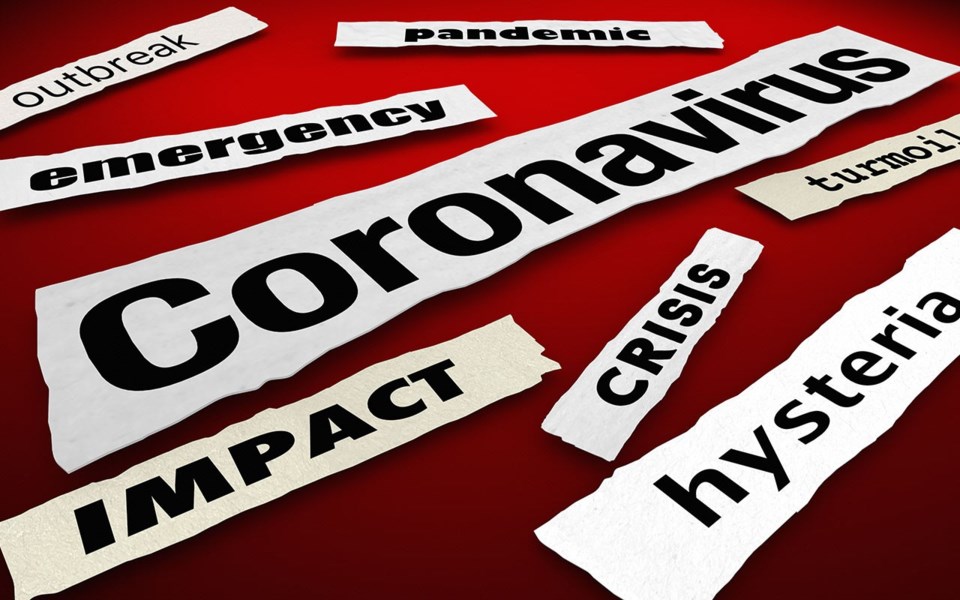I probably don't need to tell you what an insane week this has been to be a journalist. Hell, it's been an incredibly weird week to be a resident of Planet Earth, period, but watching it all unfold from the vantage point of a local reporter has only added an extra layer of surrealism.
Never in my career have I covered a story with a wider reach than COVID-19, with as many minute-by-minute twists and turns, nor have I ever seen a story this side of 9-11 inspire more confusion, anxiety and conspiracy theories.
In this industry, it doesn't take long before you become acutely aware of the limitations of some people's understanding of not only how the news works, but, more broadly, the very structures that prop up our society. Speaking with a 23-year-old Maple Ridge woman in town for a friend's birthday party this weekend, my colleague and I were astounded to learn she thought the novel coronavirus was nothing but a massive global conspiracy to keep us all indoors. (Admittedly, she could have been pulling our leg, but she remained committed to her wackadoo theory throughout the interview. When we asked her where she got her news, she quickly replied: "Facebook!")
These kinds of responses are not unusual in the dreaded comment section of our stories (never read the comments), but I realize they represent a vocal but relatively small contingent of our readers. From my experience, the average Whistler news reader is highly engaged, intelligent and fiercely passionate; it's those same qualities that brought them here in the first place, typically. But COVID-19 seemed to bring out the trolls like never before. If we posted one too many coronavirus stories, we got accused of fearmongering. If we didn't post enough, we were charged with covering it up to keep the tourism machine running, as if our small community paper was going to convince scores of visitors to pack our bars and restaurants at the height of a global pandemic.
We admittedly have a delicate balance to strike: we want our community to have all the information necessary to keep themselves safe, but we also don't want to stoke panic, and that's exactly what would happen if we had decided to report on every single rumour we heard—and boy, there were lots. (On that note, I should probably mention how limiting B.C.'s privacy policies can be for reporters trying to get timely information on the outbreak. Debate it if you will—and it's certainly worth debating, in my opinion—but it means authorities do not reveal the exact location of confirmed cases unless they have been unable to track down anyone who may have been at risk of exposure. It's telling that I got information about the two visitors to Whistler with COVID-19 from the Hong Kong government mere hours after their tests came back. At press time, I still hadn't gotten any info from B.C.'s health authorities.)
I think a good first step would be to stop treating the media as some kind of monolith, like each and every one of us is committed to pulling the wool over your eyes. Nary a month goes by without us being accused of being in cahoots with the RMOW, Whistler Blackcomb, the Chamber of Commerce and/or Tourism Whistler, as if we all sit down in the War Room from Dr. Strangelove before every issue to plot how we're going to dupe the public that week. All you have to do is have a candid conversation with a communications staffer from any one of those organizations to realize what a thorn in their side we can be, and often are.
The news ecosystem, like any other industry, is wildly diverse, representing a rainbow of perspectives, from the diligent, Pulitzer-worthy reporter on down to the sensationalist hack writing for FreedomEagle.com or some such. It's up to you to decide what news sources are worth spending your precious time consuming. Use your critical mind. Ask questions. Educating yourself on the news of the day is in my biased opinion not luxury, but duty, something that has been put in stark relief throughout these past few strange, chaotic days.




